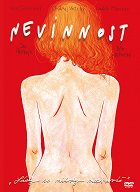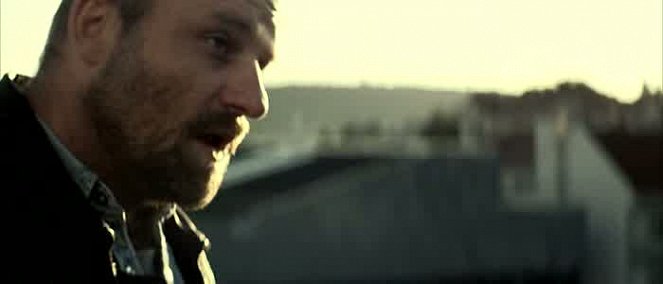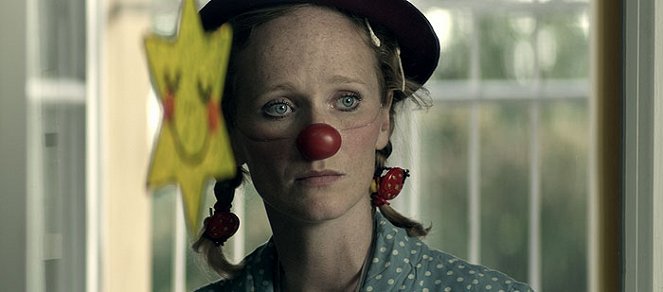Directed by:
Jan HřebejkScreenplay:
Petr JarchovskýCinematography:
Martin ŠáchaComposer:
Vladivojna La ChiaCast:
Aňa Geislerová, Ondřej Vetchý, Hynek Čermák, Zita Morávková, Anna Kameníková, Luděk Munzar, Miroslav Hanuš, Alena Mihulová, Daniel Czeizel, Rebeka Lizlerová (more)Plots(1)
You'll never get rid of love. It can get very quick to fall from the top to the very bottom. Sometimes, one little sentence is enough to wreck everything you'd been building. A renowned doctor and loved father and husband faces an indictment of a felony. He quickly finds himself in custody which is a place very hard for anyone to prove innocent, mainly when the opponent is being helped by a person likely motivated by a personal revenge. Well, the truth is said to beat lies and hatred. Nevertheless, that doesn't necessarily mean victory. Sometimes it's just a break before another, a whole lot more challenging fight. Especially when in the endeavor to save yourself, you sacrifice secrets that were to be kept hidden forever, because they are too dangerous for you and your loved ones. (official distributor synopsis)
(more)Videos (2)
Reviews (9)
Like plucking the petals of a daisy: “I liked it, I liked it not, I liked it, I liked it not…“. On the positive side, I should consider only the fact that, whereas I want to immediately forget about other Czech films, I still have to think about Innocence a day after seeing it. In my opinion, the stylistic contamination in the final third of the film is justified by the transition from a dispassionate detective investigation to a subjective narrative. The film belatedly gets its narrator and information about his past is conveyed to us as quickly as possible. The imposition of a personal point of view is the first dirty trick perpetrated against the viewer, whose sympathies for the person confessing are subsequently destroyed by that person’s dubious actions. Was it a plan or a confluence of coincidences? Inconsistency. The first one freed the innocent with her body, the second one made accusations. Not only the sins are similar, but so are the causes. Indifference. The narrative strangeness of Innocence, which particularly gives rise to strongly ambivalent feelings at the end (the roles of the guilty and the victim contradict how they were presented in the film), is significantly more inspiring than the shallow social-criticism level, the disturbingly conspicuous framework of the screenplay and the inconsistent integration of the characters into the plot (if the mentally disabled son was supposed to represent unassailable innocence, why does he completely disappear from the scene toward the end?). Innocence is a problematic film with a lot of flaws, but it deserves attention. 75%
()
In the first decade of his directing career, Hřebejk aroused expectations and with at least two titles, he managed to tune in to the needs of Czech society to reconcile so that the wolf would be fed and the goat would remain whole, along with recent history. In later times, his work instead caused doubts. He acts as a shooter suffering from conjunctivitis, so he relies on his instincts and blindly fires. Maybe it will work out. In the context of this trend, Innocence is relatively passable, but in no way good. It is decently directed, and even Geislerová performs decently, but two stories in one are too much. I would have been content with one criminal case seen through to its end, where it would be about a broader statement about the time and society, and where I wouldn't feel constructiveness, greed, and creative helplessness. I will leave three stars because as part of Czech contemporary production, it is still above average, but I won't raise my overall impression above 50%.
()
I enjoyed this Czech psychological crime drama. The cinematography and music perfectly underscored the wonderfully grim atmosphere. Hynek Čermák outshined everyone else and the young Anna Linhartová gave a very good performance. I tend to start getting bored when watching Czech films. With Kawasaki’s Rose, for instance, I got bored two minutes into the film. Innocence, however, was above average in this respect. Slightly less so in its second half but I did enjoy it and I am satisfied.
()
After Kawasaki's Rose, I was angry at Innocence for a long time because it was impossible to rehabilitate Hřebejk and Jarchovský that quickly and give them a chance again. But if I could bite the bullet and get into a certain frame of mind, I can open myself to Innocence like to no other project. The notion of innocence is explored here from many angles, and the Geislerová/Linhartová similarity suggests an ambition beyond the mirroring so much adored in Persona. Fortunately, Hřebejk doesn't copy Bergman mindlessly, and instead he just rewrites some things from the history of world cinema, and that in and of itself is not a crime. It would have been a crime if he had left the one scene with Radim Špáček in the final cut, which would have made the point a farce. The real futility of the final form thus remains only the highly questionable musical score by Vladivojna La Chia, which Hřebejk, unfortunately, used again in his other work on the series Head Over Heels. All in all, Vetchý is the acting king of Innocence, Munzar nicely underlines in his scenes a certain satire of the whole story and a relativization of the fact that Geislerová plays someone who suffers from the fact that she is no longer 14 (which is classic acting in the style we are used to from her).
()
It goes something like this: It looks good, but it's not good. Hřebejk certainly knows how to make films, he knows how to choose his actors and music, he uses imaginative camera angles and even an ordinary conversation looks interesting thanks to these aspects... But the screenplay that Jarchovský wrote this time is terrible. I've actually seen two (or three) films connected by an awkward transition, which was probably supposed to take my breath away and make me say "Well, that's really something", but that didn't happen. I honestly suffered through the last third of Innocence. It’s a pity about Ondřej Vetchý, who had practically nothing to do and was still just Ondřej Vetchý, it’s a pity about Luděk Munzár, who was completely useless, and it’s a pity about Anna Geislerová, who also just repeated several characters from her acting past. The two and a half stars I give are purely for Hřebejk's work, and I round up perhaps only for Zita Morávková. But I truly hesitate to do so.
()



Ads